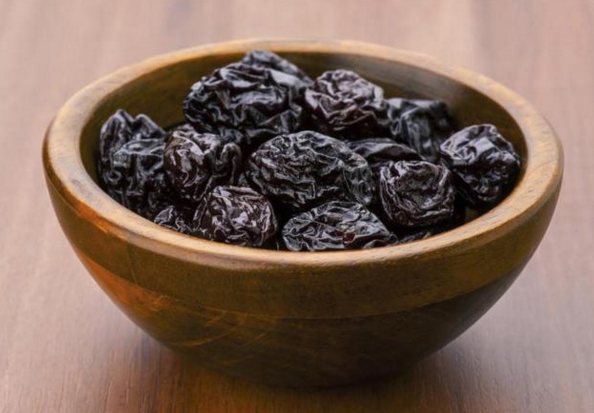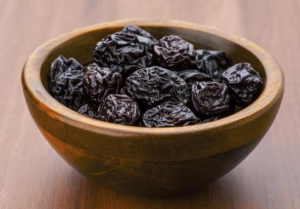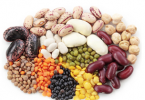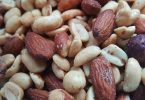Can dogs eat prunes? If you own a dog then you have probably noticed that he is interested pretty much in everything that you are eating? Most dogs will beg for food. What do you do when your furry pal is begging? Do you give in to the puppy eyes? Do you let him wait? Are prunes even safe for dogs? What about other fruit? These are the questions many dog owners wonder about. Let’s find out the answers!
There is No Reason why Dogs Shouldn’t Eat Fruit
There is a common misconception that dogs are only meant to eat meat and chew on the occasional bone, but that is not true at all. While they get their main sustenance from meat, canines can actually safely eat plenty of other foods, including food that is typically reserved for people. Fruit and vegetables are part of this category of human foods that dogs want and are allowed to consume from time to time. Excluding elements that are objectively toxic, there is no reason why dogs should not be given fruit to eat, as an occasional treat.
Can Dogs Eat Prunes?
Before you decide to feed anything new to your pet, you should inform yourself on the characteristics of that food and whether it is suitable for your best buddy. Remember that something that is very healthy and beneficial to humans can be harmful and even fatal to canines. If your pooch is constipated and you want to share them with him, you first have to figure out if this snack is appropriate for your furry pal.
Unfortunately, prunes are definitely not something you want to feed to your dog for a number of different reasons. First of all, prunes are part of the category of fruits that contain substances which are toxic to dogs. More specifically, the pit of the fruit is very toxic, it contains cyanide. That alone should be enough to make you want to keep prunes away from your pet. According to ASPCA, stems and leaves contain cyanide as well and need to be avoided.
In addition to that, prunes can actually cause digestive issues rather than fixing them. Dogs have hard time digesting prunes properly and your pooch will most likely end up with an unfortunate case of diarrhea. Prunes shouldn’t be included in your dog’s everyday diet. Prunes without the pit are not poisonous for your dog but they may cause upset stomach which makes them unpleasant for both your pet and yourself.
Don’t worry too much if your dog seems constipated. Dogs have a fast metabolism and generally constipation will resolve itself soon enough. Also, plain cooked rice is gentle for the digestive issues and will help to get thing moving in the bowel.
Can Dogs Drink Prune Juice?
The answer is no. Prune juice is not recommended for dogs either. Plain water is better which will also help with constipation problems. Water will help the food move through their body and keep the dogs hydrated.
What Else Can’t Dogs Eat?
Even if you don’t own a dog, it is common knowledge that chocolate is strictly forbidden for canines. It falls under the toxic category and no matter how much your dog begs, do not allow him to have chocolate under any circumstances. Chocolate can be deadly as much as it can be sweet. Avocado and grapes are another type of products that you need to avoid because of their toxicity. Also, avoid fruits that contains seeds such as peaches, for example. Their pits are toxic, just like prunes.
What can I Feed my Dog as a Treat?
We know that sometimes, your pooch deserves a treat because of his good behavior. For such an occasion, you can stray from the usual kibble or dog food and give him some pieces of fruit or vegetables. Watermelon can be a great snack or treat because it’s tasty and almost 100% water, there is no harm in feeding it to your dog. Surprisingly, oranges are also suitable, as long as you don’t overdo it. After all, they do have a high content of citric acid that can upset your pet’s stomach. Other good options are apples, pears, bananas, cantaloupe, raspberries, strawberries, blueberries, pineapple, sweet potatoes, broccoli florets, Brussels sprouts, carrots, asparagus, cauliflower, cucumbers, and green beans.
However, anything eaten in excessive amounts can be harmful, even water. You have to be careful about how much food/treats you allow your pet to consume. If you are concerned that he will gain access to the food behind your back and eat more than they are allowed to, then make sure that the treats are out of the dog’s reach.
Conclusion
All in all, prunes are not recommended for your dog. The pits contain cyanide and they flesh will cause digestive issues. Your pet does not need prunes so he is not missing out on anything. You can find other healthy alternative snacks for your pooch to munch on. Just make sure to feed your pet small pieces and only a few at a time.
References:
https://www.aspca.org/pet-care/animal-poison-control/toxic-and-non-toxic-plants/plum
http://canigivemydog.com/prunes
http://www.dogchannel.com/dog-food/fruits-for-dogs.aspx
http://pets.webmd.com/dogs/ss/slideshow-foods-your-dog-should-never-eat
http://www.dogchannel.com/dog-food/vegetables-for-dogs.aspx









I would suggest a slight edit. There are a lot of idiot people that do not fully read articles. When you ask, can dogs eat prunes? The first two words of your response is “Of course”. For some people that’s basically a yes.
I do appreciate the article. Thanks!
Good point and thanks for taking the time to leave a comment. I edited the sentence a bit so people who skim articles don’t get the wrong idea.
Another possible edit. The article states that the pit of the fruit is very toxic which is exactly why people do not eat the pit of the fruit. You would have to be very stupid to just give dog an unpitted prune. The reason why people eat prunes is to aid constipation which is why dogs would only be given pitted prunes. Do prunes actually contain the same chemical which makes giving chocolate and currants to dogs dangerous? Yes or no? If not what is the actual toxic element of a pitted prune or prune juice for dogs?